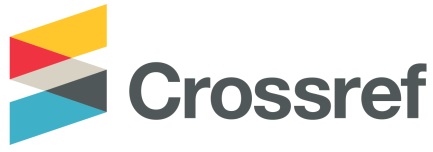Editorial Code of Ethics
1. Responsibilities of Editorial Staff
1.1. The editors-in-chief are responsible for making a decision on publication. To make a decision, editors-in-chief may consult with other editorial staff members, reviewers, as well as the scientific community members.
1.2. The editorial staff is obliged not to disclose information about the accepted articles, with the exception of authors, reviewers and potential reviewers, other scientific consultants, unless necessary.
1.3. The articles submitted for consideration should not be shown or sent to third parties without the written permission of the author.
1.4. Unpublished data should not be used for personal research or other personal purposes without the author’s written permission. Information or ideas obtained during the editing process must remain confidential until the article is published.
1.5. The editorial staff should check the submitted articles for possible plagiarism.
1.6. The publication of the article is free of charge for authors, any negotiations about a possible publication fee are unacceptable.
2. Responsibilities of Reviewers
2.1. The main purpose of peer review is to improve the quality of the material and help editors-in-chief make a decision on publication.
2.2. The manuscript submitted for review should not be shown or sent to third parties.
2.3. The reviewer is obliged to give a non-biased assessment of the article. A person should not participate in the review process in case of conflicts of interest (interactions or relationships with both authors and organizations associated with the study).
2.4. Unpublished data should not be used for personal research or other personal purposes without the written permission from the author. Information or ideas obtained during the peer review process must be kept confidential until the publication of the article.
2.5. In case of detection of plagiarism, the reviewer must inform the editorial staff.
3. Responsibilities of Authors
3.1. The submitted material must be original and not published anywhere else. In the case of using works or statements of other authors, it is necessary to provide appropriate bibliographic references or excerpts.
3.2. Submissions must be accurate and unbiased. The language should be clear to a wide audience.
3.3. Plagiarism in all forms is unacceptable. If unauthorized borrowings are detected, the editorial staff has the right to require the authors make the necessary changes to the article or refuse to publish the article.
3.4. Authors are required to disclose financial or other existing conflicts of interest (eg, employment, consulting, participation in grant projects, receipt of honoraria) that may be perceived as having an impact on the results or conclusions presented in the work.
3.5. Before submitting the article, all co-authors must approve the final version.
3.6. Submitting the same material to different venues at the same time is perceived as unethical behavior and is unacceptable.


1.jpg)

